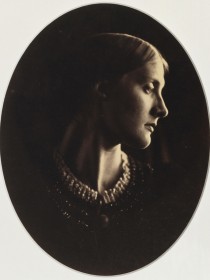


Filip Remunda
I have known Filip Remunda since he and colleague Andrea Prenghyova around the turn of the century came to an EDN workshop in Bardonecchia Italy to get advice on how to set up what became brilliant IDF (Institute of Documentary Film) and the Ex Oriente that I had the privilege to work for – for many years. Filip is still with Ex Oriente, he is a teacher, organisor, producer and director. Some years later he and Vit Klusák made the huge success ”Czech Dream” that went all over the world. This docu-comedy was followed by ”Czech Peace” in 2010, again by the two, who fully demonstrated their satirical talent for clever comments on the Czech society. It was praised by their soul-mate in humourous filmmaking, Michael Moore. The present Czech society and its xenophobia is also going to be the subject of the next film to be directed by Klusák, pitched at CPH:DOX recently by its producer Filip. I wrote the following:
”The White World According to Daliborek” to be directed by Vit Klusak is described as ”… a horror movie about the Czech desire for a white Europe…” Remunda was powerful and engaged on stage and the trailer was indeed a scary meeting with Dalibor, who says that he was ”looking for warmth and found it in a nazi group”.
On that occasion I asked Filip for a link to the film that he and Slovak director Robert Kirchhoff had made and that is still waiting for an international premiere. ”Steam on the River” (photo) is the name of
the sketchy jazz film that – again – has the characteristic unpretentious, original, why not call it crazy, narrative structure in its depiction of old Czech musicians, shot in the US, France and Czech Republic. You feel that it must have been fun to make that film about ”trumpeter Laco Deczi, saxophonist Ľubomír Tamaškovič, and contrabass player Ján Jankeje, who fled from the Soviet-occupied Czechoslovakia to the West, where their stars shone alongside those of the world’s famous musicians.” (Clip from the Jihlava Festival website).
Filip sent me another link: ””Czech Journal: Near Far East” filmed over last year at Ukraine. It is my personal road movie where I follow the story of my UKR friends in a search for the behind the scenes of the conflict.” He goes with Tanya, who works as a cleaning lady in Prague, to visit her family in the West and in the East of Ukraine, he goes with wonderful journalist Viktoria, who has moved from Donetsk area to Kiev for safety reasons, he goes with journalist Dasha, who works in the East – to get to hear from the local people, to ask questions as an outsider, to try to understand the complex situation, to catch daily situations. He has made his own reflective commentary, it is excellent, the film is excellent, the look from outside increases my understanding of Ukraine today. It is made in a series “Czech Journal” for Czech television.
